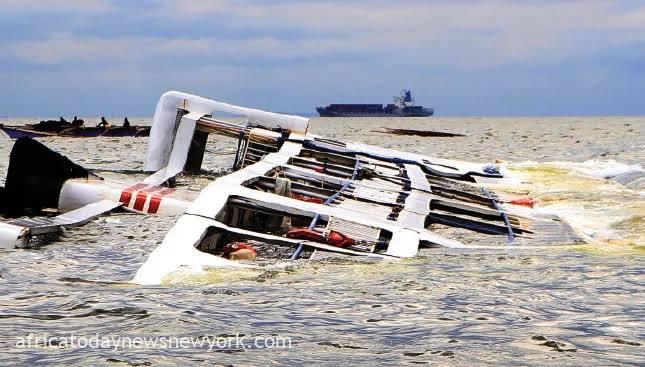In the wake of yet another devastating ferry disaster, the Chartered Institute of Logistics and Transport is urging a radical rethink of safety protocols on Nigeria’s waterways, declaring that the status quo is no longer acceptable and that urgent action is needed to safeguard the lives of passengers and crew.
In a statement, Barrister Mfon Usoro, President of CILT Nigeria, revealed that the institute’s committee conducted an inquiry into the frequent boat accidents in Nigeria, uncovering a staggering toll of over 300 lives lost on the waterways in 2023.
Usoro,a former Director General of the Nigerian Maritime Administration and Safety Agency, NIMASA, reiterated that “An independent online investigation initiated by the CILT, Nigeria Publicity Committee revealed that over 300 lives were lost to different boat accidents across the country in 2023. ”
Giving a vivid explanation on the mishaps in the nation’s stated ”Recent ferry and boat fatalities recorded include: 5 Nollywood actors and crew in Asaba, Delta State; 3 medical students in Calabar, Cross River State, 3 passengers in Ibeshe, Ikorodu, Lagos State, 8 dead and estimated 100 persons declared missing in Borgu district, Niger State, 8 passengers in Anambra State.
Read also: Dozens Die As Boat Capsizes Off Djibouti Coast In Ethiopia
“Overwhelming cause of the ferry disasters were the occurrence of one or a combination of the following factors: overloading, non-use of lifejackets, adverse weather conditions, human error, sub-standard boats and ferries, mechanical failures like engine breakdowns, inadequate safety measures, absence of navigational aids, non-availability of search and rescue services and regulatory gaps,”She highlighted .
Usoro stressed the crucial need to prioritize the safety of lives and property at sea and rivers, highlighting the shared obligation of all parties involved, particularly in the face of repeated boat mishaps.
She pointed out that the events not only result in heartbreaking loss of lives but also carry substantial economic and environmental implications.
The CILT boss stated that “While we support the use of inland waterways, is saddened by the frequent loss of lives associated with passenger ferries in our coastal and inland waterways.
“While we support the use of inland waterways transports as an alternative and viable mode of transportation, the incessant ferry related incidents resulting in fatalities has prompted a closer look at the deficit in safety culture and non-adherence to safety measures by the parties responsible for safety in our waters.
Usoro, a former Secretary of the Abuja MoU, highlighted CILT’s stance that the ‘circle of responsibility’ in water transport safety must be strengthened through collaboration and cooperation among ferry operators, jetty owners, and users to prevent accidents and ensure safe passage.

